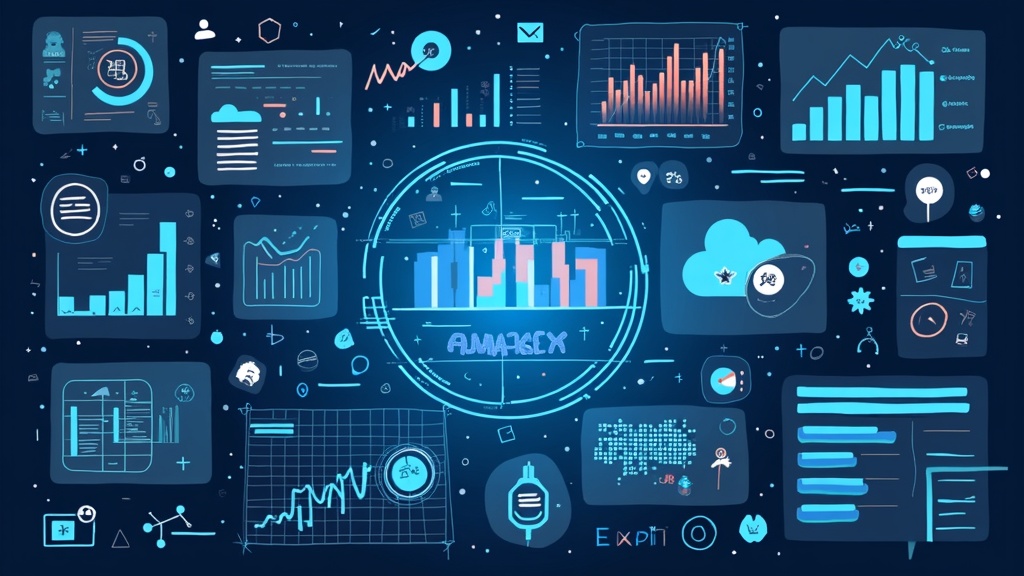AI marketing tools have become really useful for anyone looking to take their business up a notch. From automating repetitive marketing tasks to helping me get a feel for customer behaviour, these digital tools mean I don’t have to go it alone when growing my brand. In this guide, I’ll break down how AI marketing solutions work, what to look for, and some of the best AI-powered marketing tools available right now.

Why AI Marketing Tools Matter for Businesses
AI marketing tools are changing how businesses approach digital marketing. Back when traditional marketing was king, manual work took up a lot of my time—from building email campaigns to analysing customer data by hand. Today, AI-powered marketing tools handle much of that legwork for me. I get more insights, faster results, and the freedom to focus on creative strategy and fresh content ideas.
Market research highlights the rapid growth of AI marketing solutions in today’s business world. Analysts believe that the AI marketing industry could reach over $100 billion in revenue by 2030. This massive expansion shows just how much companies, large and small, now rely on digital marketing AI tools to connect with customers, automate workflows, and give a boost to their overall results.
These tools often use machine learning and natural language processing to quickly spot patterns in customer data. As a result, I can predict new trends, personalize messages, and choose where to invest my marketing budget with more confidence. Whether I’m running a startup or growing a well-established company, using the right AI business boosting tools keeps me competitive while freeing up precious time.
Getting Started with AI Marketing Tools
Trying out AI tools for marketing might feel overwhelming if I haven’t used them before. The market is packed with options, each offering a set of features that promise to step up my marketing game. I find it helpful to start with tools that tackle common tasks, such as email marketing, social media management, content creation, and analytics. Once I’m comfortable, it’s easier to get into more advanced AI marketing software and experiment with new techniques.
Here are some key terms I keep in mind as I check out these tools:
- Automation: The ability of a tool to carry out repetitive tasks on my behalf, like sending scheduled emails or posting to social media automatically.
- Personalization: Customizing marketing campaigns based on individual customer data and preferences.
- Analytics: Gathering and looking over marketing data so I can track what’s working and what might need a refresh.
- Natural Language Processing (NLP): Understanding and processing human language so AI tools can answer customer questions, create content, or summarize large volumes of text.
- Lead Scoring: Spotting which prospects are most ready to become customers.
Quick Guide to Boosting Your Marketing with AI Tools
I usually recommend working through these steps to set up a program that really works:
- Pick the Right AI Marketing Tools: Focus on software that addresses my business challenges, like increasing customer engagement or cutting down manual tasks.
- Connect to My Channels: Integrate these tools with my website, email, social media, and CRM so they pull together all the data I need.
- Set Clear Goals: Define what I want to achieve, whether it’s more leads, better retention, or improved conversion rates.
- Train and Test: Train my AI-based tools using fresh data and test smaller campaigns first before rolling out broader strategies.
- Analyse and Adjust: Check the analytics regularly. I make updates based on real insights so every campaign steps up my results over time.
Making these moves helps me work more efficiently while getting better results from each campaign, giving my marketing efforts a noticeable boost.
Things to Consider Before Choosing AI Marketing Software
Each AI marketing solution brings its own set of benefits and challenges. I try to keep these factors in mind before signing up for anything new:
- Integration: I look for tools that match up smoothly with platforms I already use, like Shopify, WordPress, or HubSpot.
- Ease of Use: Simple dashboards and clear instructions always save me time. I like programs anyone on my team can pick up quickly.
- Support and Security: I make sure the software gives strong customer support and solid security for customer data.
- Scalability: Tools should keep up with my business as it grows over time.
- Budget: I compare pricing plans and look for free trials. It’s smart to check out features before committing.
Email Marketing Automation
Email marketing makes up a huge part of my overall strategy. Tools like Mailchimp and Active Campaign use AI to send the right messages to the right customers at the right moments. For example, if someone abandons their shopping cart, these tools send follow-up reminders automatically, which can help increase conversion rates without extra effort from me.
Social Media Scheduling and Sentiment Analysis
Platforms like Buffer and Sprout Social use AI to figure out the best posting times and scan social channels for customer mood and feedback. This helps me track down trends or possible PR concerns early, so I can help smooth things out or adjust my message when needed.
Content Creation and Optimization
AI tools such as Jasper and Copy.ai help me with content creation, from blog posts to ads and web copy. These programs speed up the writing process and give my writing a boost so it’s clearer, more engaging, and optimized for search engines. This means I can keep my brand voice consistent while publishing more often—even on a tight schedule.
Ad Targeting and Budget Optimization
Google Ads and Facebook Ads Manager both pull in AI to make ad targeting, bidding, and spend smarter. I set my goals and budget, and these platforms work behind the scenes to put my ads in front of the people most likely to click through or buy.
Popular AI Marketing Tools I Recommend
A lot of business owners ask me which digital marketing AI tools are really worth checking out. Here’s a shortlist I consider super practical for nearly any industry:
- HubSpot: Combines CRM, email marketing, and analytics—using AI to score leads and automate repetitive actions.
- Hootsuite: Makes handling social media management easy by adding trend detection and listening features powered by AI.
- SurferSEO: Helps boost search engine rankings by tweaking web content with AI-driven advice.
- Drift: Offers conversational chatbots powered by AI, letting me catch leads every hour of the day, even when I’m offline.
- Zapier: Automates actions between my programs, like adding leads from my website straight into email workflows or CRMs instantly.
I always remember that the best marketing tool for one business might not suit another. Careful research and honest assessment help business owners make confident choices before sinking time or money into new programs.
Advanced Tips When Using AI Marketing Solutions
Once I have the basics down, I like to try out some advanced moves to maximize results. Here are a few practical steps that work for me:
Segment My Audience: I split my lists using AI insights. This lets me share custom offers based on what customers like, where they’re from, or how they shop.
Use Predictive Analytics: AI-powered analytics help me estimate which strategies will bring in the most return. Over time, my predictions get smarter, which keeps costs down and results growing.
Automate Reports: Rather than keeping tabs on each metric by hand, I use automated reporting. It’s a solid way to spot what works and what could use an update at a glance.
Experiment: Sometimes, I test out different tools or features for the same task and line up the results side by side. It’s surprising how often a lesser-known tool beats a mainstream option!
With these techniques, I’m able to game plan my campaigns for more punch and less hassle.
Real-World Examples and Common Questions
Marketing teams in many industries use AI-driven chatbots to handle support. For example, e-commerce brands lean on Drift or Intercom to answer common questions, gather new leads, and even close basic sales automatically. Another real-world example involves a travel agency that uses AI in Mailchimp to send customers personalized travel reminders and exclusive deals based on previous bookings—a clear way to build loyalty while saving time.
- How do I know which AI marketing tool is right for my business? I list out my key pain points and hunt for tools built for those needs. Most platforms share comparison charts and free trials.
- Can I use AI marketing tools if I have a very small team? Absolutely; many business AI tools are perfect for solo owners or small groups. Automation and simple dashboards let me save hours every week.
- Is my data safe when I use these tools? I always check the provider’s data safety policies closely and look for certifications along with encryption.
Choosing the Best AI Marketing Software for Your Business
Picking out the right AI marketing solution could mean the difference between handling all the busywork and having the space to focus on strategy and growth. Whether I’m aiming to refresh my social media style, make more out of my email campaigns, or power up my website traffic, there’s a digital marketing AI tool built for that need. The real gamechanger is taking a clear look at what my business needs and picking AI marketing tools that actually help me hit those goals—instead of creating extra work.
The bottom line is that getting better at marketing means staying curious, trying out new features, and learning from what works (and what doesn’t). While AI in marketing won’t solve every issue, it does open up more opportunities, help spot hidden trends, and gives me the tools to grow my business without the stress of handling everything alone.
